#gates of hell trilogy
Text
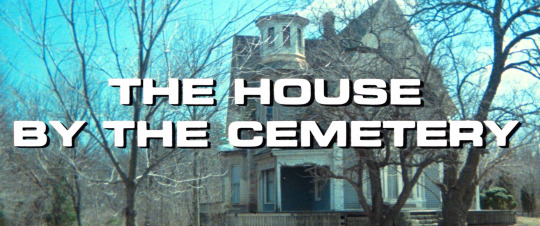
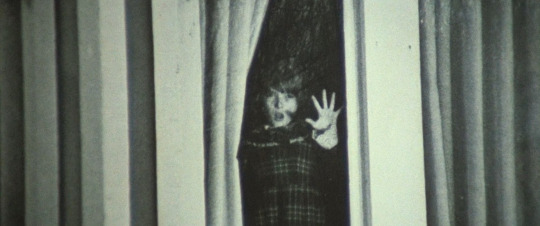
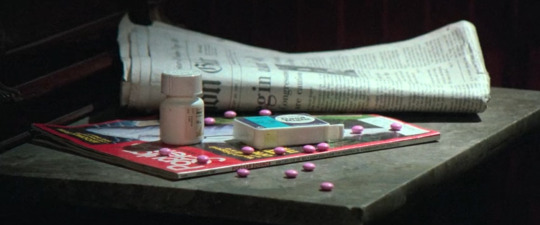
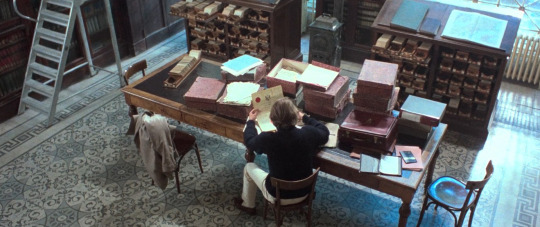
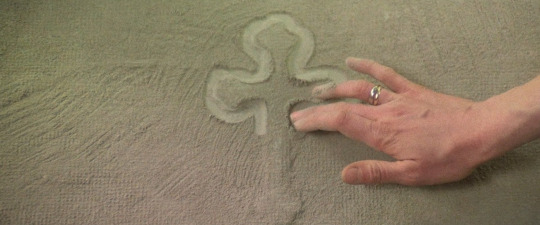
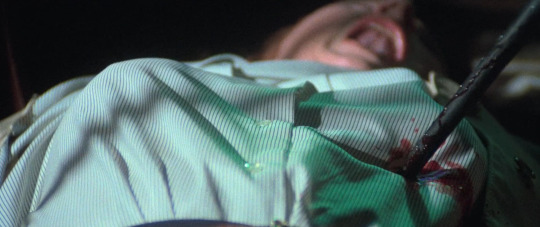
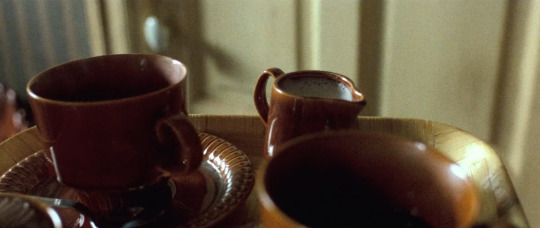
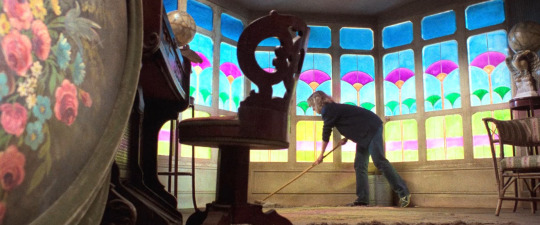
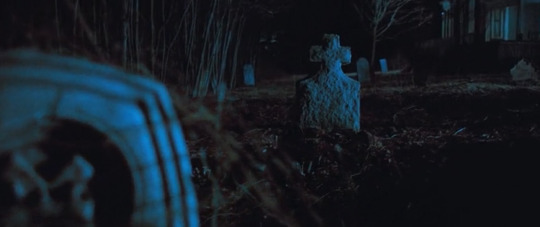
The House by the Cemetery (Quella Villa Accanto al Cimitero), 1981, dir. Lucio Fulci
#horror aesthetic#horror movies#the house by the cemetery#80s horror#italian horror#supernatural horror#lucio fulci#gates of hell trilogy
103 notes
·
View notes
Text
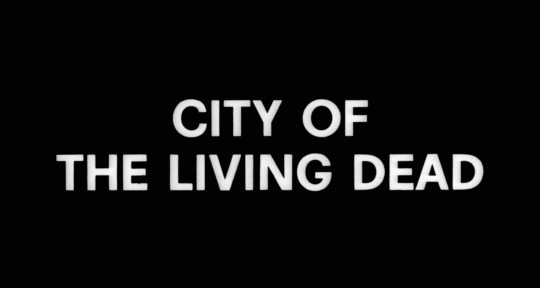
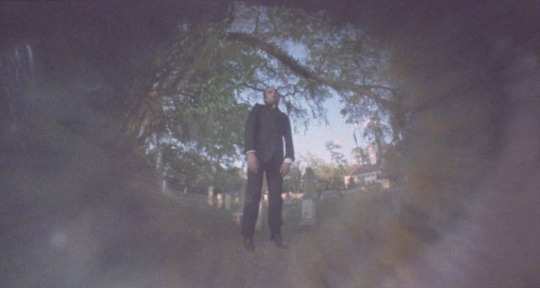
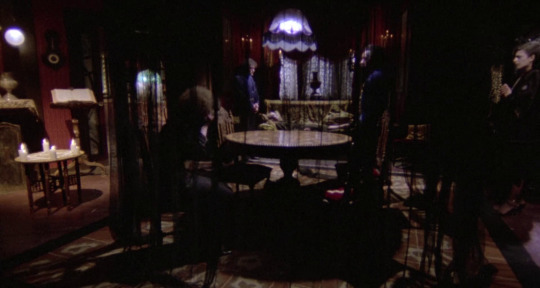
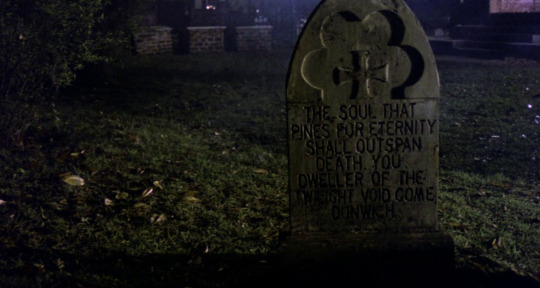
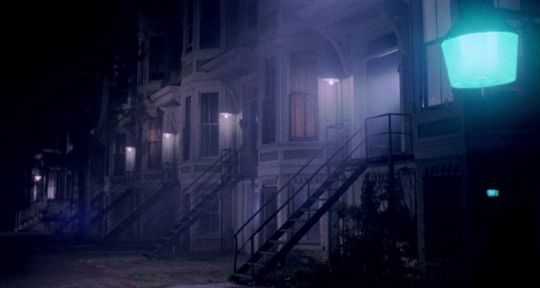
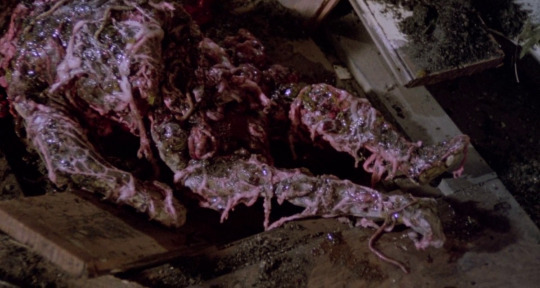
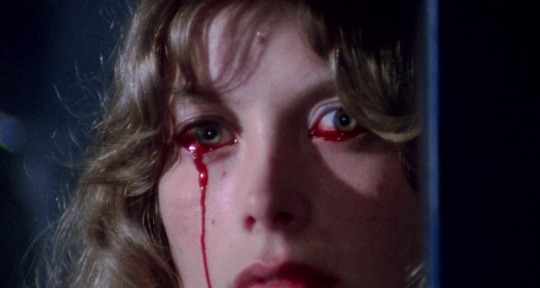
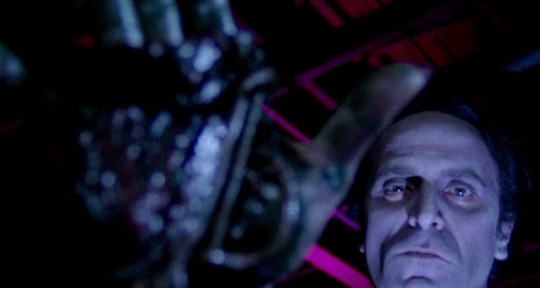
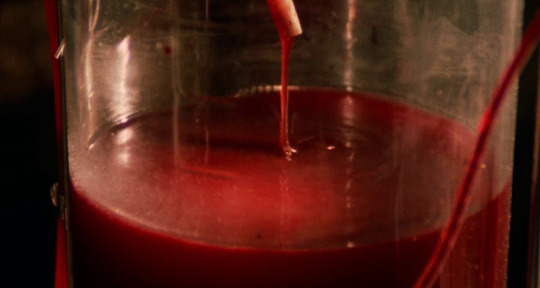
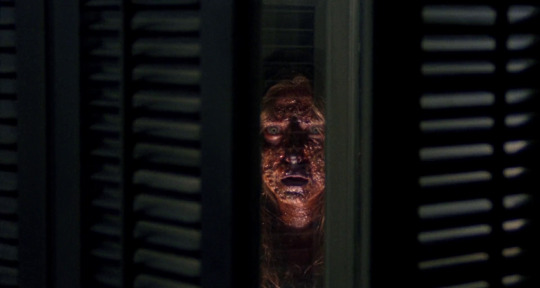
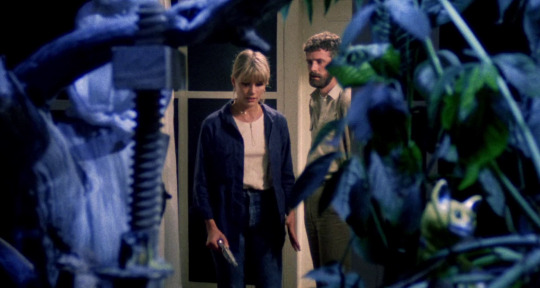
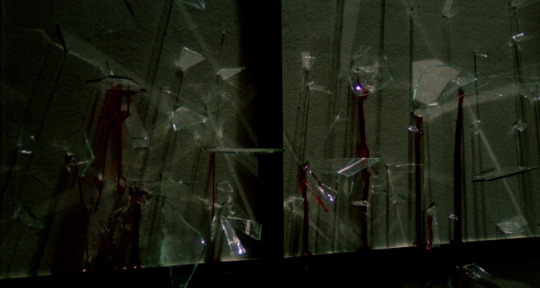
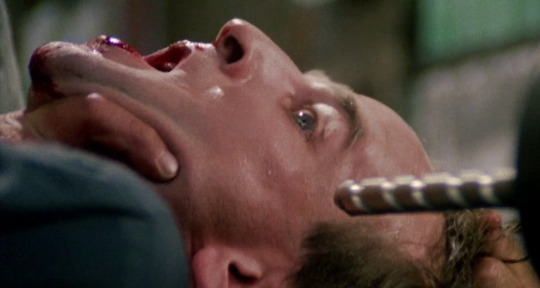
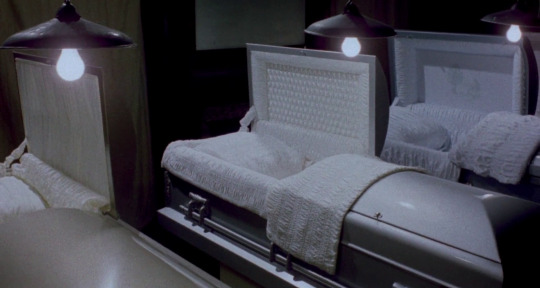
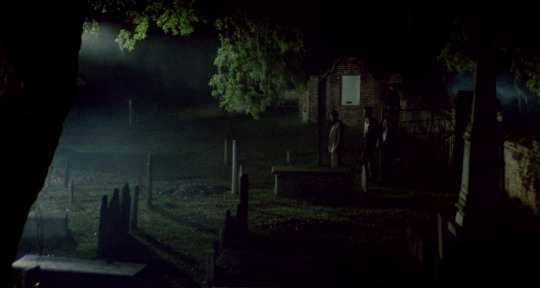
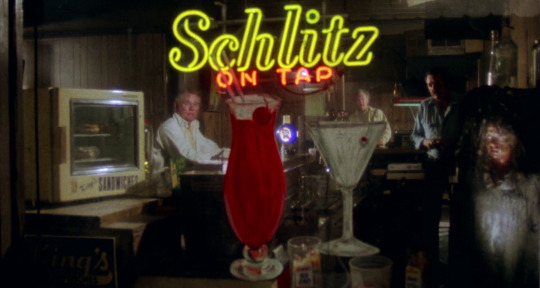

CITY OF THE LIVING DEAD / PAURA NELLA CITTÀ DEI MORTI VIVENTI
Director: Lucio Fulci
Cinematography: Sergio Salvati
#city of the living dead#paura nella città dei morti viventi#lucio fulci#gates of hell#gates of hell trilogy#catriona maccoll#christopher george#carlo de mejo#antonella interlenghi#giovanni lombardo radice#80s#80s horror#80s horror movies#italian horror#italian horror movies#italian movies#cinematography#movie screencaps#movie screenshots#movie frames#film screencaps#film screenshots#film frames#screencaps#screenshots
22 notes
·
View notes
Photo
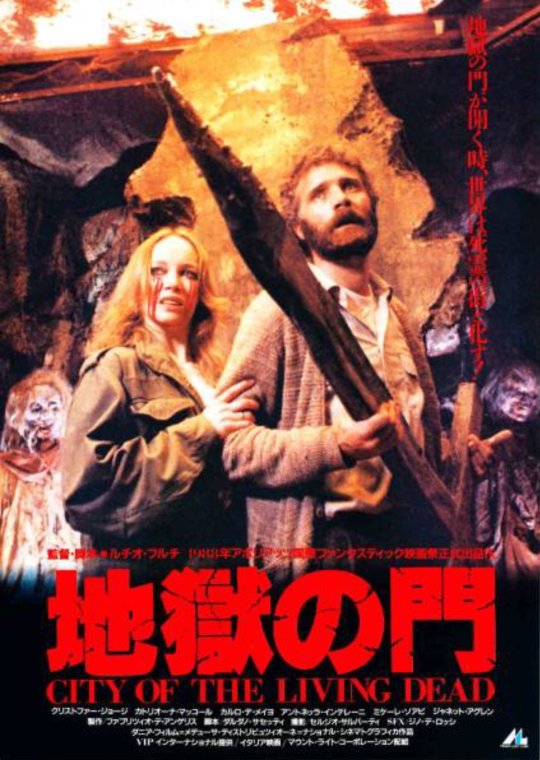
City of the Living Dead (1980)
282 notes
·
View notes
Text
The Gates Are Opening and The EVIL Wants to Squish Your Brains! "City of the Living Dead" reviewed! (Cauldron Films / 4K UHD - Blu-ray)
Cauldron Films’ “City of the Living Dead” on 4K and Blu-ray 3-disc Release!
In the Dunwich, a priest commits suicide by hanging himself in the Church’s graveyard. In the same instance, a psychic based in New York City holds a séance where she witnesses the beginning of the gates of hell opening. The order sends the psychic into sheer fright that nearly kills her. A reporter digging deep into…

View On WordPress
#4K#4K UHD#Adelaide Aste#All Saints Day#Antonella Interlenghi#blu-ray#Burial Ground: The Nights of Terror#Cannibal Ferox#Catriona MacColl#Cauldron Films#CHristopher George#City of the Living Dead#Dania Film#Daniela Doria#dawn of the dead#Eaten Alive#Fabio Frizzi#Fabrizio Jovine#Gates of Hell Trilogy#George A. Romero#Gino de Rossi#Giovanni Lombardo Radice#Graduation Dahy#horror#James Edward#Janet Argen#Luca Venantini#Lucio Fulci#Massimo Antonello Geleng#Medusa Distribuzione
0 notes
Link
The second in Fulci's Gates of Hell trilogy, I think The Beyond is the most interesting and a visual treat to be sure.
0 notes
Text
having a bit of a shit day. going to read dnd books abt it.
#my reserved book (adulthood rites) is here and the trilogy anthology of the first Drizzt books are on their way as well#someone in the library has realized someone (me) is getting Louise Erdrich books out. i got out the sentence and returned it#so they put out plague of doves. i got that out and began reading it. they put out the roundhouse (ive already read that one)#and when they recognised i havent taken it they mustve gone for another because today i found the night watchmen!#which is a recent one by her and about her own grandfather#i also found tales from the yawning portal which i wanna go through cos forgotten realms#and baldurs gate descent into avernus which also forgotten realms#i was hoping to get waterdeep dragon heist but they didnt have it :(#they do have dungeon of the mad mage which is the sequel and i will take a look through but i doubt it will be for me#its essentially one giant dungeon crawl and i need a balance of roleplay/exploration/battle in my campaigns. esp as a dm#so i would have to heavily rework it if i wanted to run it. which sucks because im REALLY enjoying the waterdeep dragon heist#campaign arcane arcade did and knowing they wont follow it up with the sequel book because its so grindy is a shame.#god dragon heist is a fantastic adventure its tied for the campaign i want to run the most with icewind dale#i have icewind dale and its fucking AMAZING absolutely would recommend it#i started the arcane arcade campaign of it this morning and i am so jealous that they have the beedle and grimms set#i would fucking KILL for a beedle and grimms box set. look them up theyre sick as hell#like their platinum curse of strahd box? i dont have curse of strahd which makes me wish i had 500 usd to drop on it so bad GOD#anyway shit day with the jack news and i have period pain and chronic pain and took a hard fall walking to the library#but the books are helping me :)
3 notes
·
View notes
Note
what are the last 5 games you've played? and who was the hottest character in each game?
woag! a random ask? cool
honkai star rail (im playing rn lol):
probably argenti so far, dan heng is really cute too (i also love looking at hanya) WAIT HOW COULD I FORGET YUKONG !!!!
genshin impact:
hmmmm… kaveh is definitely the most beautiful but hot? probably dehya. wriothesley makes me warm behind the ears honestly
pokemon violet:
if i had scarlet i would say sada but i don’t so jacq hands down!! (grusha is beautiful)
(these are the games i’ve been playing like every day, i haven’t played a brand new game in a while but)
resident evil 4 remake:
leon + ada obvi!
cyberpunk 2077:
panam no question
#honestly i’m poor as hell so i can’t afford newer releases like baldurs gate#i’m waiting for tomb raider remastered trilogy !#sorry i know you said 1 but genshin and honkai just have way too many beautiful characters
0 notes
Text

The Beyond: The Composer’s Cut Screening Dates
Experience Lucio Fulci's masterpiece of horror THE BEYOND, restored in 4K with a new music score from original composer Fabio Frizzi! Now touring select theaters across North America!
Grindhouse Releasing has teamed with legendary composer Fabio Frizzi to present a brand-new version of THE BEYOND, director Lucio Fulci’s 1981 horror masterpiece starring Catriona MacColl, David Warbeck and Cinzia Monreale.
Premiering this fall in theatrical release from Grindhouse, THE BEYOND: THE COMPOSER’S CUT features Fabio Frizzi’s new score for THE BEYOND with a brand-new 4K presentation of THE BEYOND newly scanned from the original camera negatives.
“Fulci fans will definitely want to see this on the big screen for the maximum impact,” said Grindhouse Releasing co-founder Bob Murawski. “It’s the best the movie has ever looked and a whole new experience in terror with Fabio’s brilliant new score!”
After a years-long multidimensional odyssey as the editor of Sam Raimi’s DOCTOR STRANGE IN THE MULTIVERSE OF MADNESS, Murawski is now finishing 4K UHD HDR disc editions of THE BEYOND and Ruggero Deodato’s CANNIBAL HOLOCAUST.
Murawski also confirmed work is close to complete on two sought-after ’70s thrillers coming soon to Blu-ray from Grindhouse: HOLLYWOOD 90028, screening next month at Quentin Tarantino’s New Beverly Cinema, and William Grefe’s IMPULSE, starring William Shatner.
Grindhouse will also be releasing Blu-ray editions of two Texas indies: S.F. Brownrigg’s SCUM OF THE EARTH and Palmer Rockey’s magnum opus LOVE IS DEEP INSIDE.
Grindhouse Releasing’s latest hit is Peter S. Traynor’s psycho thriller DEATH GAME, starring Seymour Cassel, Sondra Locke and Colleen Camp. DEATH GAME screens next at the 2022 L’Etrange Film Festival in Paris and is now available on Blu-ray at GrindhouseReleasing.com.
10/22 – Globe Cinema, Toronto, ON
10/22 – Sie Film Center, Denver, CO
10/25 – Cinema Lamont, Detroit, MI (*original version)
10/28 – Bengies Drive-In, Middle River, MD
10/29 – Metro Cinema, Edmonton, AB
10/29 – 10/31 –Grand Illusion Cinema, Seattle, WA
10/30 – 11/1 –AFI Silver Theatre, Silver Spring, MD
11/4 – Alamo Loudoun, Ashburn, VA
11/4 – Alamo Drafthouse Crystal City, Arlington, VA
11/4 – Alamo Woodbridge, Woodbridge, VA
11/4 – Alamo Drafthouse Bryant Street, Washington, DC
11/4 – Alamo Downtown LA, Los Angeles, CA
11/8 – Majestic Tempe 7, Tempe, AZ
11/11 – Alamo Littleton, Littleton, CO
11/17 – Plaza Theatre, Atlanta, GA
11/18 – Alamo LaCenterra, Katy, TX
11/18 – Alamo Springfield, Springfield, MO
11/18 – Alamo Corpus Christi, Corpus Christi, TX
11/18 – Alamo Drafthouse Lubbock, Lubbock, TX
11/18 – Alamo Drafthouse Laredo, Laredo, TX
11/18 – Alamo Drafthouse East El Paso, El Paso, TX
11/18 – Alamo Drafthouse Montecillo, El Paso, TX
11/18 – Alamo Drafthouse Richardson, Richardson TX
11/18 – Alamo New Mission 5, San Francisco, CA
11/18 – Alamo Brooklyn 7, Brooklyn, NY
11/18 & 19 – Marcus Des Peres Theatre, St. Louis, MO
11/30 – Music Box Theatre, Chicago, IL
12/15 & 16 – Cleveland Institute of Art Cinematheque, Cleveland, OH
#Grindhouse Releasing#The Beyond#Lucio Fulci#Fabio Frizzi#Catriona MacColl#David Warbeck#Cinzia Monreale#The Gates of Hell Trilogy#Alamo Drafthouse#4K Restoration#Doctor Strange and the Multiverse of Madness
1 note
·
View note
Text
didn’t realize until last night that Shudder had all 3 films in John Carpenter’s Apocalypse trilogy, so guess what I did
#i was up very late on a work night but you know what?#idc the movies were dope#me#horror#john carpenter#i’d already seen The Thing but i hadn’t seen Prince of Darkness or In The Mouth of Madness#def gonna do more reading about the subject#i’m just low key obsessed w/ horror directors having unofficial trilogies#the only other unofficial trilogy i’ve seen tho is lucio fulci’s gates of hell trilogy#which had some interesting stuff going on!
0 notes
Text
Ok, I think I might be exiting the "are you fucking kidding me?" period and ready to make a real argument, so lets talk about Three Act Structure!
Is OFMD S2 just the "Darkest Hour"?
A very common explanation I've been seeing for some of the... controversial... aspects of S2 is that it's meant to be that way. That the middle act is where the protagonists hit their lowest point. Where we get the big failure point. Where everything looks kind of shit.
S2 is supposedly just that point. It's The Empire Strikes Back. People have been making that comparison since before the first episodes even dropped, telling everyone to expect something that could be disappointing or unsatisfying - it's just a matter of needing to wait for S3 to pull it all together.
It's not a baseless framework to consider the show through - I'm pretty sure David Jenkins has mentioned it in interviews (or at least mentioned he planned for three acts / seasons) so it's certainly worth asking how he's doing at the 2/3rd mark.
So - quick summary of Three Act Structure:
Act 1 introduces our characters and world. It includes the inciting incident of the story and the first plot point, where a) the protagonist loses the ability to return to their normal life, and b) the story raises whatever dramatic question will drive the entire plot. Act 2 is rising action and usually most of the story. The protagonist tries to fix things and fucks them up worse, in the process learning new skills and character developing to overcome their flaws. Act 3 is the protagonist taking one more shot, but this time they are ready. We get the climax of the story, the dramatic question gets an answer, and then the story closes.
If you want examples, the Star Wars Original Trilogy is a very popular template. And, hell, he said it was a pirate story... the main Pirates of the Caribbean trilogy also does a solid job with their three acts.
Let's compare. (Spoiler: I'm not impressed 🤨)
---
First thing I need to establish... Wait. Two things. First is that Three Act Structure is flexible, so we can't really analyze success or failure by pulling up a list of necessary plot beats that should have been hit in X order. Second is that if you tell me you are writing a romance with a Three Act Structure - where "the relationship is the story" - the first thing I'm going to do is ask you how you are adapting it. Because while there's not necessarily anything preventing you from applying this to a character driven plot, most people are familiar with it as plot structure for externally driven conflict.
Unless there's a reason the status of the main relationship is intrinsically tied up in the current status of the war against the evil empire, a standard Three Act Structure is going to entail either an antagonistic force that absolutely wants your main couple apart being the main relationship obstacle OR the romance aspect being a subplot to the protagonist's narrative adventure. None of those sound like how the show has been described.
So how is OFMD adapting it?
---
Act 1
(Can't figure out how well Act 2 is doing if we don't start at setup.)
Right out the gate, OFMD breaks one of the main "rules" for a story where the Acts are delivered in three parts. Namely the one where the first Act is treated as an acceptable standalone story, with it's own satisfying yet open ended conclusion.
In Star Wars, A New Hope ends with the princess rescued, Luke finding the Force, Han finding his loyalty, and the Death Star destroyed. The Empire isn't defeated, the antagonists still live... the story is not over, but this one movie doesn't feel unfinished.
Similarly, Curse of the Black Pearl gives Jack his ship back, Elizabeth and Will get together, and Norrington has the English Navy let them all off the hook and give Jack and the pirates one day's head start.
OFMD's final beat of S1 being Kraken Arc starting is not that, even if Stede returning to sea is still a pretty hopeful note. Now... I don't necessarily think this was a bad call. At least, not if the story is the relationship. It's easy to close on a happy ending and then fuck it up next movie if the conflict is external and coming for them. Not so much if you're driving the story with your protagonists' flaws, in part because it should be really obvious at the end of setup that your main characters need development and can't run off together right now. I actually like that they were risk-takers and let S1 look at the situation clearly vs doing a fragile happy end, because it takes into account the difference between a character-driven and plot-driven narrative.
I think OFMD's Act 1 actually ends at maybe the Act of Grace? Well, there through the kiss on the beach, counting as our "first plot point" before everything goes wrong, basically.
At that point, they have setup the story and characters. We've been introduced to Edward and Stede's current issues. Signing the Act of Grace does make the intertwined arcs between them real - it's no longer a situation that either one of them could just walk away from like it was in 1x07 - and we narrow in on the (alleged) driving question of the show:
It's not about "Will Stede become a great pirate?" or "Will we develop a better kind of piracy for the crew?" - the show is the relationship and the big question is "What is Stede and Edward's happy ending?"
Act 1 ends on their first solution, being together and making each other happy and admitting it's more than just friendship. Act 2 starts, appropriately, by saying both of them are currently too flawed for that to go anywhere but crashing and burning.
Now... looking back, what does Act 1 do well vs poorly?
I think it's really strong on giving us the foundation for BlackBonnet's characters and flaws. We aren't surprised Stede goes home or Edward goes Kraken (or at least... we weren't supposed to be surprised. There are still a lot of holdouts blaming Izzy for interrupting Edward's "healing" despite how at this point in the story it doesn't make sense for Edward to have the skills to heal... but I digress). The relationship question is compelling at the end of S1, the cliffhanger hooks, and the fandom explosion of fics did not come from nowhere - the audience was invested.
I also think Act 1 does a great job of settling us in the universe. We understand the rules it abides by, from how gay pirates are just a fact of life to how there's no important organs on the left side of the body. Stede has a muppety force field. Rowboats have homing devices, and port is always as close as you want it to be. Scurvy is a joke. The overblown violence of pirate life is mostly a joke, but we are going to take the violence of childhood trauma seriously.
Lucius's fake-out death, while technically part of Act 2, works well because Act 1 did a good job of priming everyone to go "obviously this show wouldn't kill a crew member for shock value, and we're 100% supposed to suspend disbelief about how he could have survived getting flung into the sea in the middle of the night." And we do. And we get rewarded for it.
Regarding antagonists - a big focus of any setup - the show is deliberately weak. The one with the most screentime is Izzy, and he's purposefully ineffective at separating our main couple. Every antagonist is keyed to a particular character, and they function mostly to inform us of that character's flaws and development requirements. The Badmintons tell us about Stede's repression and feelings of inadequacy, and Izzy tells us about Edward's directionless discontent and tendency to avoid his problems. Effectively - the show is taking the stance this will be a character driven narrative where Stede and Edward's flaws are the source of problems and development the solution. No person or empire (or social homophobia) is separating them...
...which leads me to something not present - there nothing really about the struggle of piracy against the Empire. Looking at Curse of the Black Pearl... we see piracy is in danger. The Black Pearl itself is described as the last great pirate threat the British Navy needs to conquer. Hangings are omnipresent - Jack is sentenced to die by one almost as soon as he's introduced to the story, when his only act so far had been to wander around and save Elizabeth from drowning. OFMD tries to invoke this kind of struggle in 2x08, but there's no foundation. Our Navy antagonists are Stede's childhood bullies, and so focused on Stede the crew isn't even in danger when they get caught. The Republic of Pirates is getting jokes about being gentrified, not besieged.
Even the capture of Blackbeard by the Navy is treated as a feather in Wellington's cap but not a huge symbolic blow against piracy... because we just do not have that grand struggle woven into Act 1. You only know the "Golden Age of Piracy" is ending if you google it, or have watched a bunch of pirate shows.
Overall, a solid Act 1, well adapted to the kind of story they've said they were looking to tell - a romance in the (silly-fied) age of piracy, instead of a pirate adventure with a romantic subplot.
---
Now, Sidebar - Where is the story going?
The thing about the dramatic question - in OFMD's case: "What is Stede and Edward's happy ending?" - is that a) there's normally more than one question bundled up in that one + sideplots, and b) while you aren't supposed to have the answer yet, you can usually guess what needs to happen to give you the answer.
Back to our examples... Luke's driving question is "Will the Empire be defeated?" Simple. Straightforward. Also: "Will Luke become a Jedi?" The eventual climax of our story from there is pretty obvious... the story is over when Luke wins the war for the Rebellion in a Jedi way. That's the goal that they are working toward.
Pirates of the Caribbean is a bit more complicated. We're juggling more characters and have a less defined heroic journey, but there are driving questions like "Is Jack Sparrow a good man?" and "Is Will Turner a pirate / what does that mean?" and even "Will the British Navy defeat piracy?" They get basic answers in Curse of the Black Pearl, and far more defined ones in At World's End. Still, this is another plot-driven narrative. They've laid the foundations for the Pirates vs Empire struggle, and when that final battle turns into the trilogy climax then you know what's happening.
OFMD is not doing a plot-driven narrative. To judge how they are doing at their goals, we have to ask what they think a happy ending entails in a character sense.
Clearly it's not the classic romantic sideplot, where the climax is the first kiss / acknowledgement of feelings. They've teased a wedding in Word of God comments a lot, so that's probably our better endpoint. Specifically, though, a wedding where both of our protagonists aren't ready to flee from the altar (big ask) and where they've both grown enough that their flaws / mutual tendencies to run away from life problems won't tank the relationship.
In Stede's case it's still massive feelings of inadequacy and being too repressed to talk about his problems. Also he ran away from his family to chase a lifelong dream of being a pirate - "Is Stede going to find fulfillment in being a pirate captain, or will the real answer be love?" Edward meanwhile expresses a desire to quit piracy and retire Blackbeard, but we also find out he's struggling with massive self-loathing and guilt from killing his father - "Is retiring what Edward wants to do, or is he just running away?"
If they are going to get to a satisfying wedding beat at the climax of their story, what character beats do we need to hit in advance?
Off the top of my head - both characters need to self-realize their flaws (a pretty necessary demand of anyone who runs away from problems). They are set up to balance each other well, but also to miscommunicate easily. They have to tell each other about or verbally acknowledge that self-realization so it can be resolved. Stede has to decide how much being a pirate means to him. Edward has to decide if he's retiring and what he wants to do. They both need to show something to do with getting past their childhood traumas given all the flashbacks. Through all this, they also need to hit the normal romance beats that convince the audience they are romantically attracted to each other and like... want to get married.
Oh, and this is more of a genre-specific sideplot, but once they demonstrate a behavior that hurts the people who work for them, they need to then demonstrate later how it won't happen again. Proof of growth, which is kind of important in a comedy where a lot of the humor is based in them being massively self-centered assholes. Stede doesn't earn his acceptance in the community until he kicks Calico Jack off the ship, making up for causing the situation with Nigel in the first episode. A workplace comedy can get a lot of material from the boss as the worker's antagonist, but if you want the bosses to stay sympathetic you have got to throw them some opportunities to earn it.
All that sounds like a lot, but like - the relationship is the story, right? If we spend so much time on establishing flaws big enough to drive a story, we also have to spend time on fixing them. Which is where the turning point hits.
---
Act 2: How it Starts
This is where the full story reality-checks your protagonist. Glad you saved your boyfriend and embraced new love in Act 1, but his repressed guilt means he's about to completely ghost you, and your own abandonment issues and self-loathing are about to make his dick move into everyone else's problem.
Again, it's a non-conventional choice OFMD has this start at the very end of S1 rather than with a sudden dark turn in the S2 premiere, but it's still pretty clearly that point in the Three Act Structure.
In Star Wars, The Empire Strikes Back opens with a timeskip to our Rebellion getting absolutely crushed and hiding on a miserable frozen planet. The Empire finds them as the plot is kicking off and they have to desperately flee. They get separated. Han and Leia try to go to an ally for help and end up in Vader's clutches. It's a sharp turn from the victorious note that A New Hope ended on.
Pirates of the Caribbean's Act 2 starts dark. Dead Man's Chest opens with our happy couple Will and Elizabeth getting arrested on their wedding day for the "happy end" escape of the last movie. Jack has not been having success since reclaiming his ship, and we'll soon find out he's being hunted by dark forces. As for the general state of piracy, we get a horrifying prison where pirates are being eaten alive by crows, and a new Lord Beckett making the dying state of piracy even more textual. "Jack Sparrow is a dying breed... The world is shrinking."
The key here is making a point that our heroes aren't ready. This is the struggles part - things they try? Fail. The odds do not look to be in their favor.
Now, OFMD apparently decided to go all-in on flaw exploration, especially with Edward. The first 3 episodes of S2 are brutally efficient in outlining Edward's backslide. In S1 you could see he had issues with guilt and feeling like a bad person. S2 devolves that into a destructive, suicidal spiral where Edward forces his crew into three months of consecutive raids, repeats his shocking act of cruelty with Izzy's toe offscreen (more than once!), escalates it with his leg, and finally they state directly that Edward hates himself for killing his dad so much that he fears he's fundamentally unlovable and better off dead.
Stede's struggles are subtler, but most definitely still there. He's deliberately turning a blind eye to tales of Edward's rampage, half from simply being too self-centered to care about the harms Edward causes others, and half from being unable to face or fathom that he had the ability to hurt Edward that much. Upon reunion he wants to put the whole thing behind them, not addressing why he left in the first place. Very "love magically fixes everything" of him, except Stede is no golden merman.
Interestingly, here, BlackBonnet's relationship dysfunction has very clearly been having a negative impact on the surrounding characters we care about. Make sense, since it's the driving force of the story, but that also adds a lot more relationships we need to make right. Like... Edward is the villain to his crew. The show focuses on their trauma and poisoned relationships with him. And then draws our attention even more to Stede taking his side to overrule their objections to him.
For a story where the conflict and required resolutions are primarily character based, and the setup had already given the main couple a good amount to work with, dedicating a lot of S2 to adding more ground to cover was... a choice. Potentially very compelling on the character end, certainly challenging on the writing end... but not a complete break with the structure.
Bold, but not damning.
---
Act 2: How it Ends
Now it is true that Act 2 tends to end on a loss. Luke is defeated by Vader and loses his hand, and Han has been sent away in carbonite. Jack Sparrow for all his efforts cannot escape his fate, and he and the Pearl are dragged to the locker.
But the loss is not the point. The loss is incidental to the point.
Act 2 is about struggles and failure, but it's also about lessons learned. There's a change that occurs, and our cast - defeated but not broken - enters the final act with the essential skills, motivation, knowledge, etc. that they lacked in the beginning.
Luke Skywalker could not have defeated the Empire in Return of the Jedi until he'd learned the truth about his father and resisted the Dark Side in The Empire Strikes Back. (Ok, confession, I'm using Star Wars as an example because literally everyone is doing so, but frankly it's a better example of formulaic Three Act Structure repeating within each movie because on a trilogy level - relevant to this comparison - it is a super basic hero's journey in a very recognized outfit and as such the Act 2 relevance is also... super basic "the hero tries to fight the antagonist too early" beat where he learns humility. Not really a lot going on. So, for the better example...)
Dead Man's Chest has a downer ending with the closing moment of the survivors regaining hope and a plan against an enemy now on the verge of total victory - a classic Act 2. But in that first loss against Davy Jones we get Will's personal motivation and oath to stab the heart, Jack finally overcoming not knowing what he wanted and returning to save them from the Kraken (being a good man), Elizabeth betraying Jack (being a pirate), Barbossa's return, and Norrington's choice to bargain for his prior life back. The mission to retrieve Jack from the World's End is the final movie's plot, but things are already on track to turn the tables back around as we enter the finale.
Now, relevant sidenote - one major difference between Three Act Structure within a single work vs across three parts is that Act 2 continues into Part 3, and only tips over into Act 3 about midway through. This is because obviously your final movie or season cannot just be the climax. That's why both movie examples start with a rescue mission. They have to still be missing something so they can get the plot of their third part accelerating while they go get whatever that something is.
But if you wait until the 3rd movie / season to get the development going at all - you're fucked.
Jack's decision in the climax of At World's End to make Elizabeth into the Pirate King goes back to the development we saw in the Pearl vs Kraken fight in Dead Man's Chest. So does Elizabeth's leadership arc. Will's whole arc about becoming Captain of the Dutchman gets built upon in the third movie, but it starts in the second. Not just as an idle thought - he's actively pursuing it. Already consciously weighing saving his father vs getting back to Elizabeth as soon as he makes the oath. Everyone is moving forward in Act 2. Their remaining development might stumble for drama, or they might be a bit reluctant, but I know that they know better than to let it stick, because they already faced their true crisis points.
I'm not sure we can say the same about OFMD.
S2 does a good job of adding problems, yeah, but there's not really any movement on fixing them. Our main couple stagnates in some ways, and regresses in others.
Stede opened Act 2 by running away in the middle of the night back to his wife without telling Edward anything. We know he did it because of feeling guilty and his core childhood trauma of his dad calling him a weak and inadequate failure. Now in S1 he actually speedruns a realization of his shitty behavior with Mary, but what about S2? Well...
He continues to not talk to Edward about... pretty much anything. My guy practiced love confessions galore but Edward only finds out about going back to his wife via Anne, and it gets brushed aside with a love confession. He seems to think Edward wants him to be a dashing pirate, or maybe he just thinks he should be a dashing pirate. Idk, it doesn't get examined. Regarding his captaincy, they give him an episode plot about Izzy teaching him to respect the crew's beliefs, but this is sideplot to a larger arc of him completely overruling their traumas and concerns (and shushing their objections) to keep his boyfriend on the ship so. That.
Stede kills a man for reasons related to his issues, shoves that down inside and has sex with Edward instead of acknowledging any bad feelings. At least this time Edward was there and knows it happened? Neither Chauncey's death nor his dad have been mentioned to anyone. He gets a day of piracy fame that goes to his head, gets dumped, and ends on a complete beat down by Zheng where he learns... idk. Being a boor is bad? He's still wildly callous to her in the finale, and spends the whole time seeking validation of his pirate skills. He reunites with Edward, kisses, and quotes Han Solo.
Where S1 ended on a great fuckery, his S2 naval uniform plan after they regroup is ill defined except to call it a suicide mission - and we don't get to see what it would have been because it devolves into a very straightforward fight and flee. And gets Izzy killed. Quick cut funeral (no acknowledgement of his S2 bonding with Izzy), quick cut to wedding (foreshadowing), quick cut to... innkeeper retirement? Unclear when or even if BlackBonnet discussed Stede's whole driving dream to be a pirate and live a life at sea, but I guess that got a big priority downgrade. Despite the fact he was literally looking to Zheng for pirate-based compliments in the post-funeral scene.
I guess he's borderline-delusionally dogged in his pursuit of love now - so unlikely to bolt again - but he's also got at least a decade of experience mentally checking out in a state of repression when he's unhappy. And he's stopped being as supportive and caring toward the crew in that dogged pursuit, while arguably demonstrating a loss in leadership skills, so, um, good thing someone else is in charge?
And if Stede is a mess, Edward's arc is so much worse.
As established, they devote the Kraken to making Edward worse. He literally wants to kill himself and destroy everyone around him in the process because Stede left, and this is fixed by... Stede coming back. That's it. The crew tries to murder him and then exiles him from the ship (and Izzy takes the lead on both, indicating exactly how isolated Edward has become), but it's resolved in half a day by Stede just forcing them to put up with his boyfriend again. Like they think he murdered Buttons and still have to move him back in???
The show consistently depicts Kraken Era as a transgression against the crew, but they also avoid showing Edward acting with genuine contrition. He admits he historically doesn't apologize for anything, and then mostly still doesn't. It's a joke that he's approaching probation as a performance (CEO apology), and then the only person he genuinely talks to is Fang - the one guy cool with him - and the only person who gets a basic "sorry" is Izzy - the guy he really needs to be talking to. Edward's primary trauma is guilt, but apparently he only feels it abstractly after all that? He's only concerned with fixing things with Stede, despite Stede being about the only person around who hurt him instead of the reverse.
Speaking of primary traumas, Edward hating himself doesn't really go anywhere after the beat of self-realization. Apparently Stede still loving him is enough of a bandaid to end the suicide chasing, but he doesn't like. Acknowledge that. Edward is maybe sorta trying to go slow so he doesn't hang all his self-worth on Stede again (you can speculate), but they a) absolutely fail to go slow, and b) he doesn't make any attempt to develop himself or another support structure. Just basically... "let's be friends a bit before hooking back up." And then we get the whiplash that is Blackbeard and/or retirement.
Kraken Era is Blackbeard but way worse, like no one who has known Blackbeard has ever seen him. In the Gravy Basket Edward claims he might like being an innkeeper, before destroying his own fantasy by having the spectre of Hornigold confront him over killing his dad. The BlackBonnet to Anne & Mary parallel says running away to China / retiring makes you want to kill each other - burn it all down and go back to piracy. Stede rightfully points out prior retirement plans were whims. Edward gets sick of the penance sack after a day and puts his leathers back on to go try "poison into positivity". But also claims to be an innkeeper (look - two whole mentions!) when trying not to send children to be pirates after teaching them important knife skills.
Killing Ned Low is a serious, bad thing that prompts ill-advised sex and then going hardcore into retirement mode - leathers overboard, talk about mermaid fantasy, get retirement blessings from Izzy, end up dumping Stede for a fishing job instead of talking about how he's enjoying piracy. The fishing job, however, is also a bad thing and a stupid decision because Edward is a lazy freeloader fantasizing about being a better person. We have an uncomfortable, extended scene of "Pop-Pop" weirdly echoing his abusive dad and then sending Edward to go do what he's good at - disassociate, brutally murder two guys, fish up the leathers, rise as the Kraken from the sea. He continues with comically efficient murder but also he's reading Stede's love letters and seeking to reunite with him so... wait, is this a good thing? Post makeout / mass slaughter he's trading compliments on his kills with Zheng so. Yeah. Looks like it. Murder is fine.
Wait, no, skip ahead and Izzy is dying and Edward suddenly cares a whole lot as Izzy makes his death scene about freeing Edward from Blackbeard. Now being a pirate was "encouraging the darkness" because Izzy - a guy who had little to no influence over Edward's behavior - just couldn't let Blackbeard go. Murder is bad again, and he is freed. Minus the little detail that the murder he explicitly hates himself over was not related to Blackbeard or piracy whatsoever, so presumably haunts "just Ed" still. Anyway he's retiring to run an inn with Stede now, as the "loving family" Izzy comforted him with in his dying moments sails away from the couple that can best be described as the antagonists of their S2 arc. Also Edward implicitly wants to get married. It's been 3 days since making out was "too fast". He's still wearing the leathers.
So most of the way through Act 2 and Edward's barely on speaking terms with anyone but Stede, who he has once again hung his entire life on really fast? Crushing guilt leads to self-hatred leads to mass murder and suicide, but only if he's upset so just avoid that. He's still regularly idealizing Stede as a non-fucked up golden mermaid person (that maybe he personally ruined a bit) because he barely knows the guy. His only progress on his future is "pirate" crossed out / rewritten / crossed out again a few times, "fisherman" crossed out, and "innkeeper ?"
Just.
Where is the forward movement?
It's not just that the inn will undoubtedly fall apart - it's that the inn will fall apart for the near-exact same reasons that China was going to at the beginning of Act 2, and I can't point to anything they've learned in the time since that will help them. I guess Stede realized he loved Edward enough to chase after him, but that was in S1! They should be further than this by now. You can't cram another crisis backslide, all the Act 2 development, and the full Act 3 climax into one season. Certainly not without it feeling like the characters magically fix themselves.
If they just fail and keep blindly stumbling into the same issues because they don't change their behavior, then Act 2 doesn't work. You're just repeating the turning point between Act 1 & Act 2 on a loop.
---
Where Did They Fuck Up?
Actually... lets start on what they did right.
The one consistent aspect of S2 that I praised and still think was done well in a vacuum (despite being mostly left out of the finale) was the crew's union-building arc.
With only 8 episodes and more to do in them than S1, side characters were going to get pinched even if the main plot was absolutely flawless. That was unavoidable. With budget cuts / scheduling issues, we regularly have crew members simply vanish offscreen outside of one scene, meaning cohesive arcs for your faves was not likely. Not to say they couldn't have done better - my benefit of the doubt for the TealOranges breakup and Oluwande x Zheng dried up about when I realized he was literally just her Stede stand-in for the parallel - but something like Jim's revenge plot from S1 was realistically not on the table without, like, turning half the crew into seagulls to afford it.
The union building works around this constraint really well. They turn "the crew" into the side arc, and then weave Izzy's beats in so that they aren't just about Izzy. The breakup boat crew working together to comfort each other and protect him turns them into a unit, and Stede's crew taking it upon themselves to address the trauma vibes while the captains aren't in the way solidifies it across all our side characters. The crew goes to war with Stede's cursed coat and wins, they Calypso their boss to throw a party, and they capitalize on a chance to make bank with an efficiency Stede could only dream of.
We don't get specific arcs, but Frenchie, Jim, and Oluwande are defaulted to as leaders in just about every situation, and Roach is constantly shown sharing his inventions with different characters. Individuals can dip in and out without feeling like the sideplots stutter. Any sense of community in S2 is coming from this arc - even if there are cracks at the points where it joins to other storylines (Stede and Edward, Zheng, etc.)
So why does it work? Well, because it's a workplace comedy, and you can tell they are familiar with working on those. They know where the beats are. They know where to find the humor. They know how to build off of S1 because they made sure the bones were already there - an eclectic group of individuals that start as just coworkers, but bond over time in the face of their struggle against an inept boss who they grow to care for and support while maintaining an increasingly friendly antagonism because, you know, inept boss.
OFMD does its best work in S2 when it's being true to its original concept... and its worst work when it seemingly loses confidence in its own premise.
"The show is the relationship," right? It's a romance set in a workplace comedy. The setup of Act 1 was all about creating a character-driven narrative. So given that... where the hell are we getting the dying of piracy and a war against the English Navy?
That's not a character-driven romcom backdrop, it's an action-adventure plot from Pirates of the Caribbean or Black Sails. It's plot-driven, creating an antagonistic force that results in your characters' problems. Once the story is about the fight against the Empire, the dramatic question becomes the same as those adventure stories - "Will the British Navy defeat piracy, and will our protagonists come out the other side of the battle?"
Forget the wedding. The wedding is no longer the climax of the story, its back to the happy ending flash our romantic subplot gets after winning this fight.
Except, of course, trying to pivot your story to a contradictory dramatic question near the end of Act 2 can be nothing short of a disaster, because either you were writing the wrong story until now, or you've completely lost the plot of the real one. I shouldn't even be trying to figure out if they are doing this, because it should be so obvious that they wouldn't.
And yet.
What do the Zheng and Ricky plots add to the story if not this? Neither of these characters have anything emotionally to contribute to Stede and Edward - they truly are plot elements. It's a hard break from the S1 antagonist model, but it also takes up a lot of valuable screentime. This was considered important, but still Zheng's personality and motivation only gets explored so far as it's an Edward-Stede-Izzy parallel with Oluwande and Auntie, and they only need the parallel for Izzy's genre-jumping death scene. Which follows a thematically out-of-left-field speech about how piracy is about belonging to something good (workable) and how Ricky could never destroy their spirits (um...?). And then David Jenkins is pointing to it and saying things about "the symbolic death of piracy" and speculating S3 might be about the crew getting "payback"??? An idea floated by Zheng right before our temporary retirement, btw.
Fuck, the final episode of S2 didn't have time for our main couple to talk to each other because it was so busy dealing with the mass explosion of Zheng's fleet and Ricky's victory gloat. We get lethal violence associated with traumatic flashbacks until they need to cut down enemy mooks like it's nothing, at which point we get jokes with Zheng. The Republic of Pirates is destroyed outright, and it feels like they only did it because they got insecure about their "pirate story" not having the right kind of stakes. Don't even get me started on killing a major character because "Piracy’s a dangerous occupation, and some characters should die," as if suspending disbelief on this aspect makes the story somehow lesser, instead of just being a fairly standard genre convention in comedy. Nobody complains about Kermit the Frog having an improbably good survival record.
Did someone tell them that the heroes have to lose a battle near the end of Act 2, so they scrambled to give them one?
Just... compare the wholly plot-driven struggle in 2x08 to Stede and Edward's character-focused storylines in 1x10 and tell me how 2x08 is providing anything nearly as valuable to the story. Because I can't fucking find it.
At best they wasted a bunch of time on a poorly integrated adventure plot as, like, Zheng's backstory or something, and just fucked it up horribly by trying to "step up" the kind of plot they did for Jim. In which case the whole thing will be awkwardly dropped but damage is done. Otherwise, they actually thought they could just casually add a subplot like this because they've done something wildly stupid like think "pirate" is a genre on the same level as "workplace comedy" and can just trample in-universe coherency while you draw on other media to shore up their unsupported beats.
Bringing us to the most infuriating bit...
---
"...end the second season in a kinder spot."
If this was the goal, the entire season was written to work actively against it in way that is baffling and incompetent.
The really ironic thing is that the reason that the Act 2 part typically gets a downer ending is because of the evil empire that OFMD did not have to deal with until they pointlessly added it. A plot-driven story has an antagonistic force - a villain - that the heroes need to defeat. Something external working against them. The story ends when they beat the thing, and it's not much of a climax if they do most of the defeating before you get there. Ergo, they have to be outmatched up to the climax. Ergo, the second part cannot end on them feeling pretty comfortable and confident going into the third.
The same rules do not apply in the same way to a character-driven arc.
We already established Edward and Stede declaring their love is not the end of the story. Nor, necessarily, is both of them confidently entering a relationship. Even once they've developed a bunch they will have to show that development by running into the kinds of problems that would have broken them up before and resolving them better.
David Jenkins keeps talking about this idea that S2 is getting a hopeful open ending and S3 will get into potential problems, and like... I don't see any reason why they couldn't have done that successfully. They didn't, but they could've.
If S2 grew them enough as characters and then had them agree to try again in the last minute of the finale, they absolutely could have had a kind and hopeful ending where you were confident they could do it. And then a potential S3 can show that. It's a bit rockier than they were counting on, but they have learned enough lessons to not break up. And then the overall plot can build to proposal (start of Act 3) and wedding (the romantic climax). It doesn't have to be a blow out fight to be emotionally cathartic.
(Hell, the main rockier bit that they overcome in the S3 Act 2 portions could be marriage baggage. I'm sure they both have some. It would work.)
In the same way focusing on our character's long term flaws and character-driven conflict makes an Act 1 "happy ending" more difficult, I suspect it makes an Act 2 "happy ending" easier.
Instead they wrote an Act 2 that failed to convincingly start development and got confused on its direction, and then presented a rushed finale ending in a copy of the predictable disaster from S1 as though it's a good thing. They yanked the story at least temporarily into an awkward place where a romcom is trying to sell me on a bunch of serious drama / adventure beats that it has not put the work into, and inviting comparisons to better versions of those same beats in other, more suited media that make it look worse. The need to portray everyone as reaching happy closure overrules sitting with a major character death and using it for any narrative significance, while still letting it overshadow those happy endings because a romcom just sloppily killed a major character with a wound they've literally looked into the camera and said was harmless.
If I'm being entirely honest, Dead Man's Chest ends effectively at Jack Sparrow's funeral and then cuts to the British Navy obtaining a weapon of mass destruction, and it still feels kinder and more hopeful just because I leave with more faith the characters are actively capable of and working toward solving their problems.
OFMD S2, in contrast, has half-convinced me our main couple would live in a mutually obsessed, miscommunication-ridden horror story until they die.
---
Additional Reading
Normally I link stuff like this in the post, but that requires more excitement than I'm feeling right now. Here's my alternative:
Where I thought they were going with Edward - really outlines the mountain of character development they still have unaddressed
Where I thought they were going with Izzy - touches on a lot of themes that might be dead in the water & also context that's still probably relevant to why Izzy got a lot of focus in S2
My scattershot 2x08 reactions
An ask where I sketched out the bones of this argument, and another where I was mostly venting about the fandom response
This one, this other one, and this last one (read the link in op's post too) about genre shifts and failure to pull them off
The trauma goes in the box but it never opens back up - the whole point of Act 2 is that they needed to start opening shit like that - and also they focus so much on needed character growth and so little on following through
They can't even carry through on character growth that we got last season???
Why Izzy's death feels like Bury Your Gays ran smack into shitty writing
EDIT: Oh and this post is REALLY good for outlining the lack of change in way less words than I did
#our flag means death#ofmd#ofmd s2#ofmd s2 spoilers#ofmd meta#three act structure#character arcs#blackbonnet#genre#blackbeard ofmd#stede bonnet ofmd#my meta#ladyluscinia#ofmd critical
257 notes
·
View notes
Text
Ten Books to Know Me
@aboxthecolourofheartache reblogged her version of this from ages ago but she'd tagged whoever saw it and it sounds very fun and difficult so let's do it!
Tris's Book by Tamora Pierce - I had a habit as a kid of always picking up the second book in a series, so this was the first of Tamora Pierce's books I read. Emelan had an effect on me on a microcosmic level, I'm pretty sure. Anyway, the protag of a whole world of mine is named Tris now, in homage to Trisana Chandler, so. the particulate is still kicking around in my brain.
Ptolemy's Gate by Jonathan Stroud - Another childhood FAVE. This series as a whole started fucking with what I understood a book to be. Also the ending of it has a vice grip on me to this day, and it is probably why so much of my writing is very vibey and favors ambiguous endings.
Cyrano de Bergerac - This was the first assigned reading I had in high school that I utterly LOVED. I love this play so much, I love the tragedy, I love the quiet sorrow. This was also the first proper tragedy that I remember really loving.
The Opposite of Loneliness by Marina Keegan - This is a book of poetry and short stories by a Yale creative writing student who was killed in a car crash very soon after graduating, compiled by her professor after her death. I read it repeatedly in college; it is really quite lovely.
Underland by Robert Macfarlane - Apologies to Box who wanted reading recommendations, but she is who introduced me to this book if I remember correctly, and I have spent the two years since I read it habitually picking up Macfarlane's writing without even realizing it. Absolutely phenomenal writing.
Staying with the Trouble by Donna Haraway - @ professor Haraway I know you are a semi-retired scholar and also in the most expensive college town on earth but are you looking for research assistants cuz uh
The Mushroom at the End of the World by Anna Tsing - I actually read both Staying with the Trouble and this book on the same weekend in the start of 2021. I compromised on not including Entangled Life by Merlin Sheldrake, which I felt was very cliche of me, by including this book, which had as much of an effect. Read those three and Pantheologies by Mary-Jane Rubenstein and you will have some semblance of an idea of what the spiritual portion of my brain looks like. In the interest of not writing the same blurb four times I left the latter two off but know they make up a little microcosm of 'you could make a religion out of this' for me.
The Cat Who Saved Books by Sosuke Natskukawa - A Japanese novel about a cat who appears to a teenager after the death of his grandfather, a bookseller. I read it when I was very frustrated with trying to read contemporary fiction and it was a bright spot among that. (I am still very frustrated with the state of contemporary fiction and this book remains a light.)
Braiding Sweetgrass by Robin Wall Kimmerer - Okay I read this one most recently out of this list (over the summer) but it had been on my list for a long time and it really does live up to the hype because it is just so luminous in every sense.
Annihilation by Jeff Vandermeer - I had to put this one last simply because HOLY HELL. Rewired my brain. This is the goal I aspire to, this is the dream I dream, this is the highest peak among the mountain range of writing aspirations that I climb. If I can one day write anything even akin to the Southern Reach trilogy I will be ready to die, but that is an utterly unachievable goal so God's just gonna have to let me live forever, I guess.
#this was SO difficult I'm ngl#I had several more that I agonized over#the fact that there is no le guin on this? insanity. but regardless#also there were some that I didn't include cuz I read them too recently and didn't want to go too hard with the recency bias but#if anyone has read both underland and braiding sweetgrass 'the language of trees' features both authors and is STUNNING#megs is reading#also everyone read the alan dean foster novelization of star trek (2009). that was the other one from my childhood that hit so hard
70 notes
·
View notes
Photo
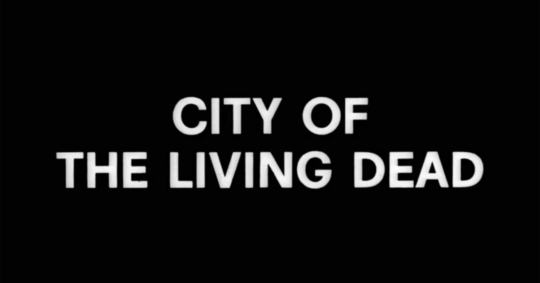
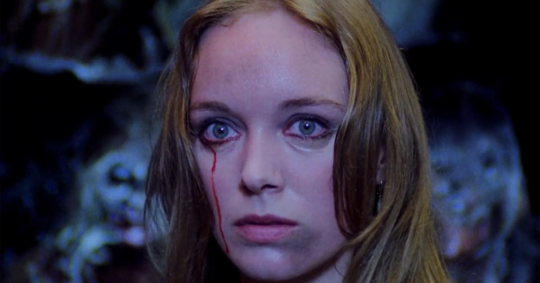
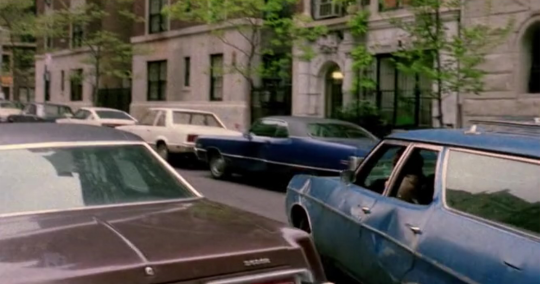
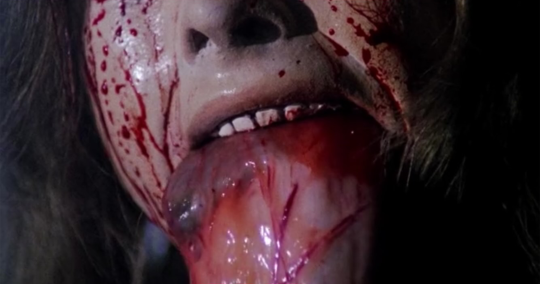

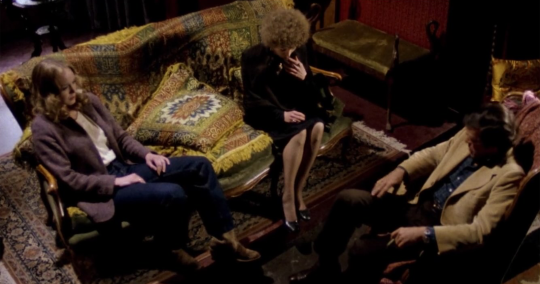
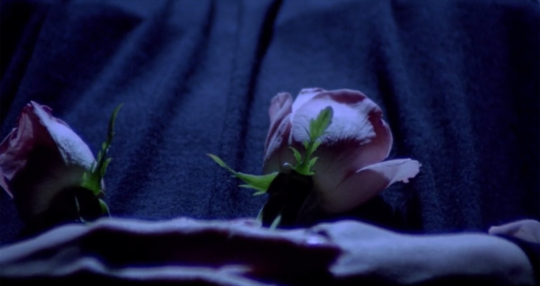
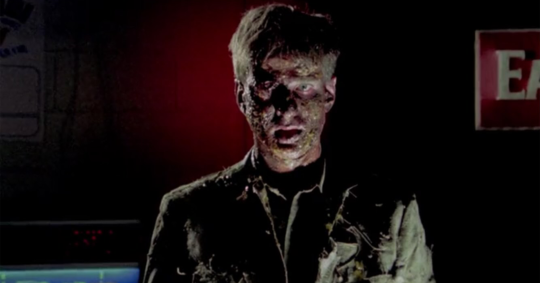

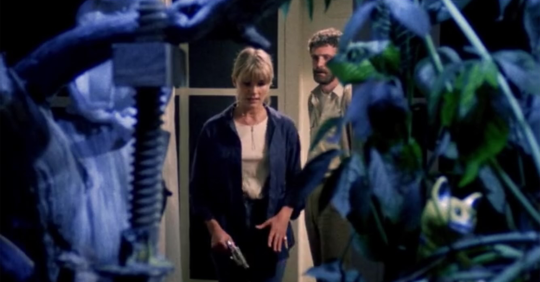
City of the Living Dead, 1980, dir. Lucio Fulgi
#city of the living dead#horror aesthetic#Horror Movies#lucio fulci#italian horror#80s horror#gates of hell trilogy
116 notes
·
View notes
Text
Githyanki History Timeline
After MUCH research, I present: a timeline of the history of the gith! Starting from their earliest known appearances in history, spanning multiple planes, and ending at "the present day." Sources below the cut.
The subterranean empire of Zarum is founded on the Material Plane world of Oerth. The gith inhabitants, likely originally human, are highly religious, live deeply ritualistic lives, and claim complete control over many other peoples.
A patron deity of the gith dies and is buried somewhere under the material plane world of Pharagos. Presumably this, and possibly other deaths, are why the gods didn't intervene in what came next.
The illithids invade from a parallel, destroying the empire and enslaving the gith. The gith are forcibly dispersed across many planes of existence. Some are taken to the planet of Penumbra, where they'll remain and miss out on the rebellion, remaining in the long term as the "forerunners."
The great rebellion: Gith leads her people to shatter the entire illithid empire across every plane and leave it in ruins.
The githyanki relocate from the Material Plane to the Astral Sea.
The city of Tu'narath is founded on the body of a dead god and the gith begin forging their famous silver swords.
If Baldur's Gate 3 is treated as canon, somewhere in here Gith's son Orpheus is born.
Zerthimon objects to Gith's attempts to continue a war now that the gith are free. A civil war of the gith ensues and they split into the githyanki (children of Gith) and githzerai (those who spurn Gith). In some sources this is called "The Pronouncement of Two Skies." The githzerai depart for the plane of Limbo. A small splinter faction, the githvyrik, break off from both sides.
Gith and Vlaakith travel to the Hells to negotiate for aid from the archdevil Dispater. He denies them, but the dragon goddess Tiamat accepts a deal for the souls of githyanki rulers in return for the service of red dragons. Gith remains in the Hells as the first sacrifice. Vlaakith returns to the Astral Sea as regent in Gith's name, carrying the Scepter of Ephelomon as symbol of the pact.
If Baldur's Gate 3 is treated as canon, Orpheus tries to overthrow Vlaakith and is imprisoned, thought dead by the general public.
The extended regency of the line of Vlaakith begins and will last for 156 descendants. Vlaakith promises the githyanki the Material Plane as a "garden" for harvesting. At some point, Zerthimon disappears and it's unclear exactly where he went. Suggestions range from enlightened transcendence to death to lichdom.
The faction of the gul'othran, githyanki who seek total conquest and death of all aberrations rather than mere raiding and plunder, appears.
At some point after this, a significantly-sized githyanki ship breaks through into the planar-locked world of Athas. It's stranded there and all aboard are mutated permanently by psionic energies of that world, with no way to get back. The ship is considered lost.
The forge of Kamyn-Dhun, where the best silver swords were forged, is lost by sinking into the ocean. The githyanki remaining there undergo magical adjustments to allow them to survive underwater in their now-sunken city.
Approximately 1,000 years prior to the present day, Vlaakith CLVII (157) undergoes a transformation to become a lich. She will reign unchallenged until the present day, when either the events of The Lich-Queen's Beloved will take place or the events of Baldur's Gate 3 will take place, depending on the setting.
Baldur's Gate 3, Larian Studios, 2023
Chainmail Miniatures Game: Blood and Darkness - Set 2 Guidebook
Dark Sun Campaign Setting, 2nd Edition
Dark Sun Creature Catalog, 4th Edition
Dawn of Night (Erevis Cale Trilogy, Book II, 2009)
Dragon Magazine #294 - Underground Scenarios
Dragon Magazine #298 - Vault of the Drow and Wizards' Workshop: Chainmail
Dungeon #100 - The Lich-Queen's Beloved
Dungeon #116 - The Death of Lashimire
Dungeon #125 - Seeker of the Silver Forge
Dungeon #168 - A Tyranny of Souls
The Illithiad 3, Masters of Eternal Night
The Illithiad 4, Dawn of the Overmind
Mordenkainen's Tome of Foes, 5th Edition
The Plane Above, 4th Edition
The Plane Below, 4th Edition
Planescape: Torment, Black Isle Studios, 1999
Polyhedron #159 - Chapter 5: The Invasion of Pharagos
#githyanki#baldur's gate 3#d&d#this leaves out some of the later stuff#like what happens AFTER lich-queen's beloved#if you wanna know that#get into the scales of war adventure path#utterly bonkers stuff#and this is just the stuff that runs up to the current vlaakith#her reign has had some WILD things going on
33 notes
·
View notes
Photo
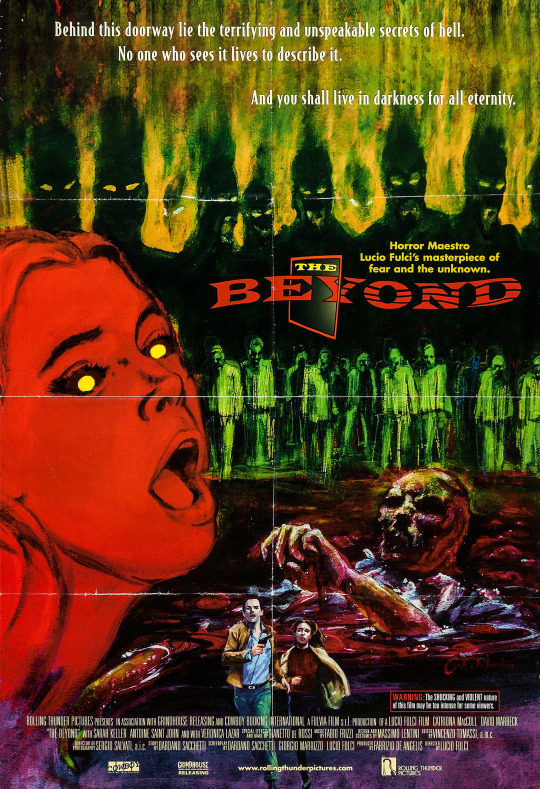
The Beyond (1981)
220 notes
·
View notes
Text
Hello IEYTD fandom, I know I'm not much of someone who... participates much. I lurk, I drop in to throw an ieytd fic at y'all and put Jackson through more hell, but... I have a legitimate question. Please don't be mad if I am out of line, but I'm genuinely confused as someone who is a storyteller himself and is learning game design in college. This leads me into another point here-
This will go into game and story analysis!
I'll admit most of my questions are rhetorical, so as rude as I may accidentally sound... I want to have a genuine discussion about this fandom, and I am coming in as a third party who doesn't partake in anything here really other then loving people's fanfiction and art. I watch, I listen, and yet... I am utterly exhausted and kind of frustrated with the state of this fandom as a mostly outside observer.
So, I'm legitimately just putting these questions out there to get them off my mind, and I really don't have the energy to partake in any arguments. I am not looking for any arguments like "well I don't think so" or "I don't see that." I have been here silently watching and yet what I shall bring up has stood out to me near-constantly.
Why is there just... such blatant mischaracterization in this fandom? And why, furthermore, are people so... shocked that people enjoy villainous characters? And even furthermore.... why are people constantly dumbing down antagonists?
As a writer myself, I often constantly find myself mentally praising Schell on this amazing trilogy of games. Especially because 99.9 percent of the characters are villains. A hero is only as good as their villain - that is a crucial part of video game development. Of storytelling as a whole.
I am studying game design. Actively going to college for this.
I have been reading and consuming and analyzing fiction since I was a kid.
I've been working on an RPG for the past three years, my passion project.
No matter if you're reading a story, watching a movie, or in this case playing a video game, this is a fundamental concept. A hero is only as good as their villain. That is what makes us root for a hero. A villain has to be menacing, a threat to the main hero, needs to be compelling, and furthermore most of the time needs to be understandable. A villain that you can see exactly how they got to that point and can kind of empathize with that is a well written villain.
Being able to see or analyze how a villain got to that point is not excusing their bad actions or ignoring that a character is a bad guy.
That is someone critically analyzing a character and enjoying their arc. And furthermore, that is a testament to good writing.
Being able to understand exactly how a villain got to the point they're at makes them more terrifying.
Characters like Sephiroth (honestly most Final Fantasy antagonists, really), the Dead Three's Chosen from Baldur's Gate, basically every villain from Splatoon, Count Bleck from Super Paper Mario and so much more are not beloved characters just because they're just like, considered hot (idk fandoms be wild) or blorboified (is that even a term?).
They're loved because they are genuine threats who have such depth to their character and are interesting because they are villains. And furthermore, vanquishing or going against these villains feels important because they have depth. Because they can be analyzed.
That's what I love about IEYTD as both a gamer, and a storyteller myself. The Phoenix is a complete blank slate. The Phoenix is a player insert. That is not a personal stance. That is an intentional game mechanic. That is not a consequence of IEYTD being a VR game - many VR games have a proper named main character, even if they are a silent protagonist. The Phoenix is once again a blank slate for the player to project onto, and that is an intentional decision by Schell. This is how they wanted to tell their story. I love an oc-ified Phoenix as much as the the next person - I mean, look at Jackson - but the Phoenix is a literal blank slate. You cannot ignore that.
So how do you make a silent character with no appearance or voice interesting? How do you make the player care? Furthermore, how do you make the game feel rewarding?
You fill the game with a plethora of characters - primarily villains - that have enough character and drive that make the player feel good about overcoming the challenges and trials that come. That is just good game design.
Every single villain - from someone who barely gets any mention like Daniel Sans, to major, major villains like Solaris, Juniper, and Prism, to even a villain who we don't know shit about like Zor - is a menacing force. Overcoming the obstacles that are sent your way leads to a rewarding game play loop where you, the player, actually give a shit about the story, the world, the villains, and the player insert of the Phoenix themselves.
There is so much to every single villain that one can pick apart, that it becomes insulting to the characters and honestly to Schell's writers when you reduce their characters to just "a girlboss who kills people" (Fabricator) or "a whiny bitch of a privileged asshole" (Juniper) or "just a silly guy who likes bees" (Hivemind) or "she didn't do anything wrong, she was just manipulated" (Prism).
Even the most minor of a villain in this game has so, so many layers you could pick apart and analyze and... so many people in this fandom all but Flanderize them. It almost feels like people in this fandom cannot grasp the concept of characters being multifaceted.
And even more, that they cannot imagine liking a villain even though they are a villain.
This is a trend that I've seen a lot within fandom recently and... it's something I don't get. Writing a character who is a terrible person (and liking said character) does not make someone a terrible person. That is something that people do not seem to get nowadays thanks to likely lack of media literacy and... it kind of kills me a little bit as someone who analyzes so many types of media and is working on a story driven RPG, and once again is going to college for game design.
A character who is flawed is believable. No realistic character is infallible.
John Juniper is prone to anger, he is a man who is egotistical, arrogant, and a bit of a prick. However, these bad traits of his were likely preyed upon by Zoraxis and he became worse because of that. I am not saying he did no wrong, I am saying that you have to acknowledge that he is multifaceted.
The Fabricator has a fair bit of flair too, but to reduce her to just a quote-en-quote girlboss ignores her work. She makes Saw-esque death traps and delights in the pain and ultimately death her traps make.
Hivemind delights in killing people with literal bee stings. Think about that, think of how brutal of a death that would be. The average adult can withstand over one-thousand bee stings, or approximately ten stings per pound. And he laughs about it.
Prism knew what she was getting into, and hearing people say she did nothing wrong is... confusing. She worked for the EOD. She knew who Zor was. She knew what they would do. It is no secret that they regularly backstab their own employees. Zoraxis elite have a target on their back from their own employer. Prism likely knew that, and yet worked for them anyways. Yes, she helps the Phoenix in the end. But that is the culmination of her arc. You have to acknowledge that.
These are but a few examples - I am not going into full rants about every single character. I have an essay due on Sunday, I need some of my sanity left. But I feel like this had to be said.
To reduce these characters to Flanderized versions of themselves is to almost insult the writing in these games. To insult the very complexity and depth and thought that was put into these characters. And as a lover of story driven media who often analyzes - occasionally over-analyzing - these sorts of games for fun, and is aspiring to complete a story driven RPG with hopefully in-depth villains.... it is simply saddening to witness.
I felt this had to be said, thank you for your time if you read this. I now hopefully should have some peace of mind for the time being.
20 notes
·
View notes
Link
City of the Living Dead kicks off a loose trilogy by Italian gross-out horror king Lucio Fulci. I don't mind saying it's a fun watch.
0 notes